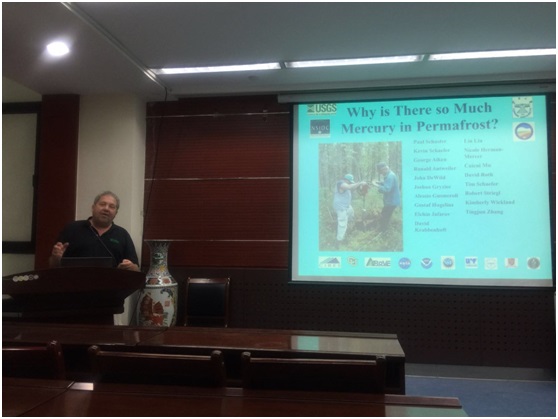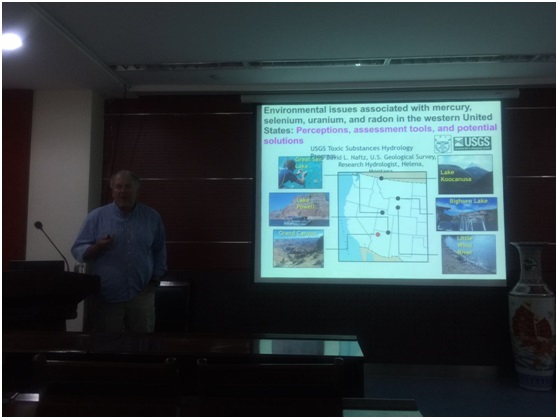Invited by Distinguished Prof. ZHANG Tingjun and Dr. MOU Cuicui of college of Earth and Environmental Sciences, Researchers Paul F Schuster and Dave L Naftz from The United States Geological Survey conducted an exchange visit to our university on May 23th, 2019, and gave academic reports respectively entitled “Why is there so much mercury in permafrost?” and “Environmental issues associated with mercury, selenium, uranium, and radon in the western United States: Perceptions, assessment tools, and potential solutions” in the meeting room 1615,GuanYun Building.
Paul F Schuster firstly introduced the distribution and status quo of permafrost, and then analyzed the relationship between the mercury flux and carbon dioxide flux according to the Denali monitoring data in Alaska, and believed that the two have a significant correlation, and then analyzed the soil mercury reserves in permafrost area. Dave L Naftz introduced the biogeochemical cycle of mercury, selenium and uranium, biogeochemical processes in high-salt lakes, and the application of passive and active technologies in groundwater, wetlands, and reservoir restoration. The report was followed by in-depth discussions and exchanges between the teachers and students and the two scholars regarding the observation and simulation of soil mercury content in permafrost areas and the chemical monitoring of reservoirs and salt lakes in China.

